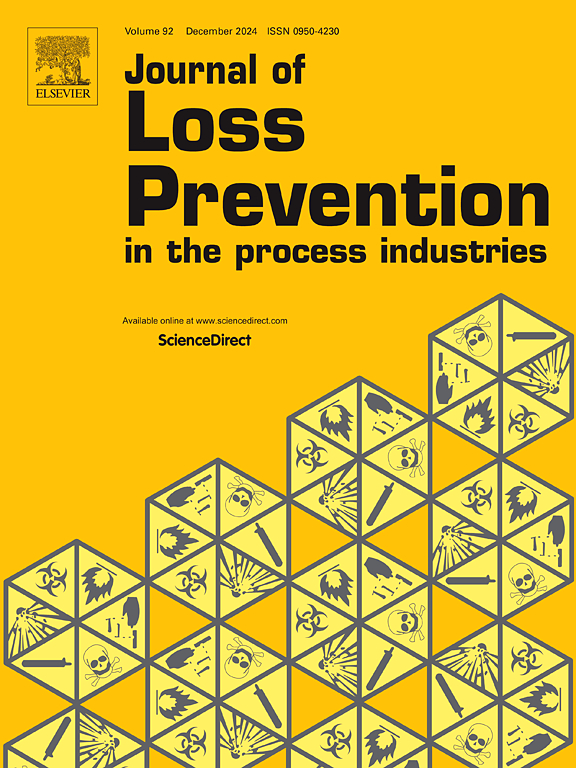中试教育化工厂的设计与运行
IF 4.2
3区 工程技术
Q2 ENGINEERING, CHEMICAL
Journal of Loss Prevention in The Process Industries
Pub Date : 2025-07-10
DOI:10.1016/j.jlp.2025.105737
引用次数: 0
摘要
在过去的几十年里,化学工业对人类的发展做出了巨大的贡献,经历了快速的增长。然而,尽管加强了安全法规和企业安全管理,工业事故仍在不断发生。本研究提出了一种教育方法,通过在类似实际工业场所的环境中进行实践来提高安全性和生产率。通过设计和操作一个具有教育意义的石化装置,学员可以获得实际设备和材料的实践经验,培养他们处理各种情况的能力。调查结果显示,内部讲师指导的培训是最常见的方法,了解基本设备被认为是新员工最重要的能力。教育工厂优先考虑安全,使用无毒原料,如C10-15正石蜡,以尽量减少环境风险,减少废物产生。教育满意度调查显示,教育石化装置的方案和设施都得到了较高的满意度,说明教育石化装置的设计和运行是有效的。此外,本研究还分享了实际操作中遇到的问题及其解决方案。这项研究表明,在现实环境中的实践培训可以在提高安全性和生产力方面发挥关键作用。本文章由计算机程序翻译,如有差异,请以英文原文为准。
Design and operation of pilot-scale educational chemical plant
The chemical industry has significantly contributed to human development over the past decades, experiencing rapid growth. However, despite strengthened safety regulations and corporate safety management efforts, industrial accidents continue to occur. This study proposes an educational approach to enhance safety and productivity by practicing in environments similar to actual industrial sites. By designing and operating an educational petrochemical plant, trainees gain hands-on experience with real equipment and materials, developing their ability to handle various situations. Survey results show that internal instructor-led training is the most common method, and understanding basic equipment is considered the most important competency for new employees. The educational plant prioritizes safety by using non-toxic raw materials, such as C10-15 normal paraffin, to minimize environmental risks and reduce waste generation. The educational satisfaction survey revealed high satisfaction with both the program and facilities, indicating that the educational petrochemical plant is effectively designed and operated. Additionally, the study shares problems encountered during actual operations and their solutions. This research demonstrates that practical training in real-world settings can play a crucial role in improving safety and productivity.
求助全文
通过发布文献求助,成功后即可免费获取论文全文。
去求助
来源期刊
CiteScore
7.20
自引率
14.30%
发文量
226
审稿时长
52 days
期刊介绍:
The broad scope of the journal is process safety. Process safety is defined as the prevention and mitigation of process-related injuries and damage arising from process incidents involving fire, explosion and toxic release. Such undesired events occur in the process industries during the use, storage, manufacture, handling, and transportation of highly hazardous chemicals.

 求助内容:
求助内容: 应助结果提醒方式:
应助结果提醒方式:


